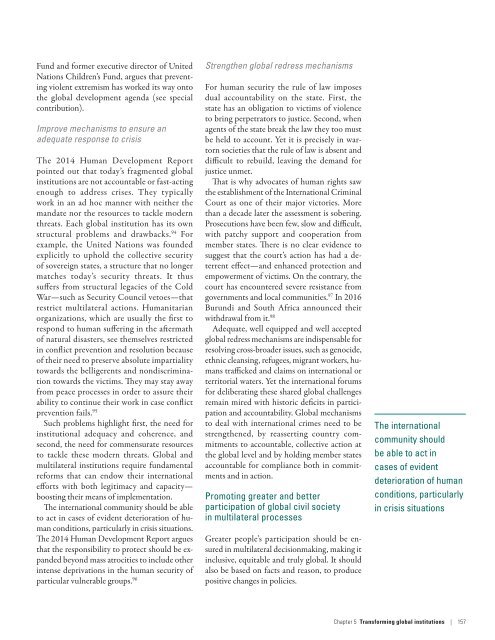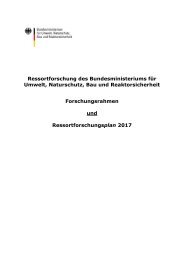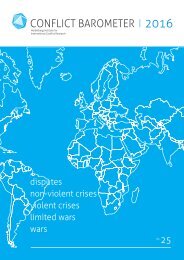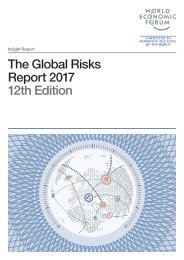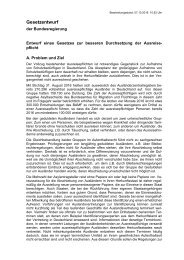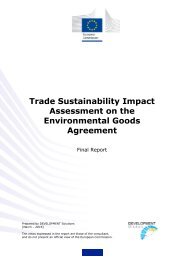Human Development Report 2016
6Tyccfrzw
6Tyccfrzw
Create successful ePaper yourself
Turn your PDF publications into a flip-book with our unique Google optimized e-Paper software.
Fund and former executive director of United<br />
Nations Children’s Fund, argues that preventing<br />
violent extremism has worked its way onto<br />
the global development agenda (see special<br />
contribution).<br />
Improve mechanisms to ensure an<br />
adequate response to crisis<br />
The 2014 <strong>Human</strong> <strong>Development</strong> <strong>Report</strong><br />
pointed out that today’s fragmented global<br />
institutions are not accountable or fast- acting<br />
enough to address crises. They typically<br />
work in an ad hoc manner with neither the<br />
mandate nor the resources to tackle modern<br />
threats. Each global institution has its own<br />
structural problems and drawbacks. 94 For<br />
example, the United Nations was founded<br />
explicitly to uphold the collective security<br />
of sovereign states, a structure that no longer<br />
matches today’s security threats. It thus<br />
suffers from structural legacies of the Cold<br />
War — such as Security Council vetoes — that<br />
restrict multilateral actions. <strong>Human</strong>itarian<br />
organizations, which are usually the first to<br />
respond to human suffering in the aftermath<br />
of natural disasters, see themselves restricted<br />
in conflict prevention and resolution because<br />
of their need to preserve absolute impartiality<br />
towards the belligerents and nondiscrimination<br />
towards the victims. They may stay away<br />
from peace processes in order to assure their<br />
ability to continue their work in case conflict<br />
prevention fails. 95<br />
Such problems highlight first, the need for<br />
institutional adequacy and coherence, and<br />
second, the need for commensurate resources<br />
to tackle these modern threats. Global and<br />
multilateral institutions require fundamental<br />
reforms that can endow their international<br />
efforts with both legitimacy and capacity —<br />
boosting their means of implementation.<br />
The international community should be able<br />
to act in cases of evident deterioration of human<br />
conditions, particularly in crisis situations.<br />
The 2014 <strong>Human</strong> <strong>Development</strong> <strong>Report</strong> argues<br />
that the responsibility to protect should be expanded<br />
beyond mass atrocities to include other<br />
intense deprivations in the human security of<br />
particular vulnerable groups. 96<br />
Strengthen global redress mechanisms<br />
For human security the rule of law imposes<br />
dual accountability on the state. First, the<br />
state has an obligation to victims of violence<br />
to bring perpetrators to justice. Second, when<br />
agents of the state break the law they too must<br />
be held to account. Yet it is precisely in wartorn<br />
societies that the rule of law is absent and<br />
difficult to rebuild, leaving the demand for<br />
justice unmet.<br />
That is why advocates of human rights saw<br />
the establishment of the International Criminal<br />
Court as one of their major victories. More<br />
than a decade later the assessment is sobering.<br />
Prosecutions have been few, slow and difficult,<br />
with patchy support and cooperation from<br />
member states. There is no clear evidence to<br />
suggest that the court’s action has had a deterrent<br />
effect — and enhanced protection and<br />
empowerment of victims. On the contrary, the<br />
court has encountered severe resistance from<br />
governments and local communities. 97 In <strong>2016</strong><br />
Burundi and South Africa announced their<br />
withdrawal from it. 98<br />
Adequate, well equipped and well accepted<br />
global redress mechanisms are indispensable for<br />
resolving cross-broader issues, such as genocide,<br />
ethnic cleansing, refugees, migrant workers, humans<br />
trafficked and claims on international or<br />
territorial waters. Yet the international forums<br />
for deliberating these shared global challenges<br />
remain mired with historic deficits in participation<br />
and accountability. Global mechanisms<br />
to deal with international crimes need to be<br />
strengthened, by reasserting country commitments<br />
to accountable, collective action at<br />
the global level and by holding member states<br />
accountable for compliance both in commitments<br />
and in action.<br />
Promoting greater and better<br />
participation of global civil society<br />
in multilateral processes<br />
Greater people’s participation should be ensured<br />
in multilateral decisionmaking, making it<br />
inclusive, equitable and truly global. It should<br />
also be based on facts and reason, to produce<br />
positive changes in policies.<br />
The international<br />
community should<br />
be able to act in<br />
cases of evident<br />
deterioration of human<br />
conditions, particularly<br />
in crisis situations<br />
Chapter 5 Transforming global institutions | 157


